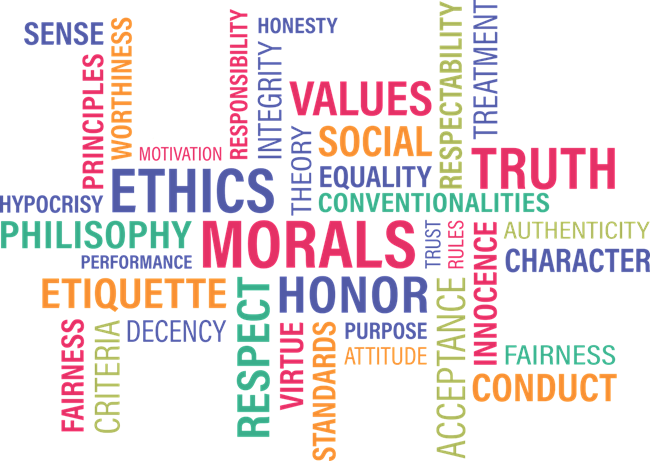
Image by Mary Pahlke from Pixabay.
This spring, Jilly Moss of southwest London was in a position that no parent ever wants to be in: at the hospital as her daughter, Alba, fought a fever with her eyes swollen shut. Alba had measles and was only 11 months old, too young to get vaccinated. In an attempt to educate other families about the importance of vaccines, Moss posted pictures on Facebook of her daughter in the hospital, covered with the disease’s signature skin rash.
“The truth is this all could have been prevented if the protection layer of older kids above Alba had been vaccinated,” Moss wrote.
Here in the United States, the American Academy of Pediatrics reports that there were 1,215 measles cases in 30 states from January 1 to August 22, 2019, the most cases in the last 27 years and since measles was eliminated in 2000. That puts the “eliminated” status of the disease at risk. Approximately 90% of this year’s cases are people who were unvaccinated.
How did we get here, when there are numerous studies showing that the measles, mumps, and rubella (MMR) vaccine is safe and effective? We’re here because a segment of the population has adopted a skeptical response to advice coming from the scientific community regarding childhood vaccination. Public challenges to scientific evidence on this and other issues, such as the causes of climate change and the safety of genetically modified crops, have led some to believe there is a general loss of trust in science. The problem is not so simple, though.
A recent study by the Pew Research Center shows that trust in scientists is rising. The poll found that the percentage of respondents who say they trust scientists at least “a fair amount” increased to 86% in 2019, up from 76% in 2016. Medical scientists are trusted to act in the best interest of the public by 87% of respondents, according to the survey. These results prompt questions about an apparent disconnection between growing public trust in science and its use in personal decision-making.
The poll reveals that politics is a factor in determining one’s confidence in scientists to inform certain decisions. Whereas 60% of respondents say scientists should take an active role in policy debates, Democrats, at 54%, are more inclined than Republicans, at 34%, to value the opinions of scientific experts on policy matters. On this issue, Sigma Xi, a non-partisan organization, has little influence.
However, there are aspects of the Pew survey that directly fall within the purview of the Society. The poll found that African Americans and Hispanics, for example, expressed more concern than whites about professional or research misconduct by medical researchers. It is believed that these results may be related to historical cases of misconduct involving lack of consent, such as the Tuskegee syphilis study and the case of Henrietta Lacks. Blacks and Hispanics are also more likely than whites to describe the misconduct of nutrition and environmental research scientists to be a big problem, indicating a higher tendency to question researchers. There is an opportunity to bridge this divide by building trusted relationships in these communities.
The survey indicates that public perception of scientific integrity is linked to transparency and accountability, regardless of racial background. Only 19% of all respondents felt that researchers across six fields were transparent about potential conflicts of interest, and less than 20% of respondents say that scientists admit wrongdoing most or all of the time. On the positive side, people who are more familiar with scientists and their work express more trusting views of the scientific community. The data suggest that by increasing transparency, accountability, and familiarity scientists could further improve public trust in science and, perhaps, increase its use in decision-making.
Now more than ever, organizations like Sigma Xi have a role to play in building public confidence in science. In addition to pledging to “maintain honor, integrity and honesty in all scientific activities,” Sigma Xi members have a unique platform to demonstrate attributes that can strengthen public trust and to cultivate similar qualities within our junior colleagues and students. Sigma Xi chapters are leading the way by organizing professional ethics discussions at their institutions, whether they are based on a college campus, at a government lab, or in an industry setting. Individual members are advancing these principles at their places of employment by posing questions when others appear to be overlooking ethical matters, encouraging ethics conversations with their colleagues and supervisors, and publicly speaking about what they are doing to ensure that the public’s concerns are being considered.
Similarly, the Sigma Xi Board of Directors has approved the establishment of the Committee on Scientific Conduct and Professional Ethics. This committee will help determine the most effective way to promote ethical research practices among our members and within the broader research enterprise. We are actively seeking volunteers to be a part of this important work. Sigma Xi members may contact executiveoffice@sigmaxi.org to learn more about volunteering on the committee.
Do you have ideas about how researchers can build trust with the public? Please comment below.
Jamie L. Vernon, PhD
Executive Director and CEO, Sigma Xi
Publisher, American Scientist
Links
1. Americans say open access to data and independent review inspire more trust in research findings. From the Pew Research Center
2. America's relationship with scientists? It's complicated. From The Washington Post.
3. Americans trust scientists, until politics get in the way. From Wired.